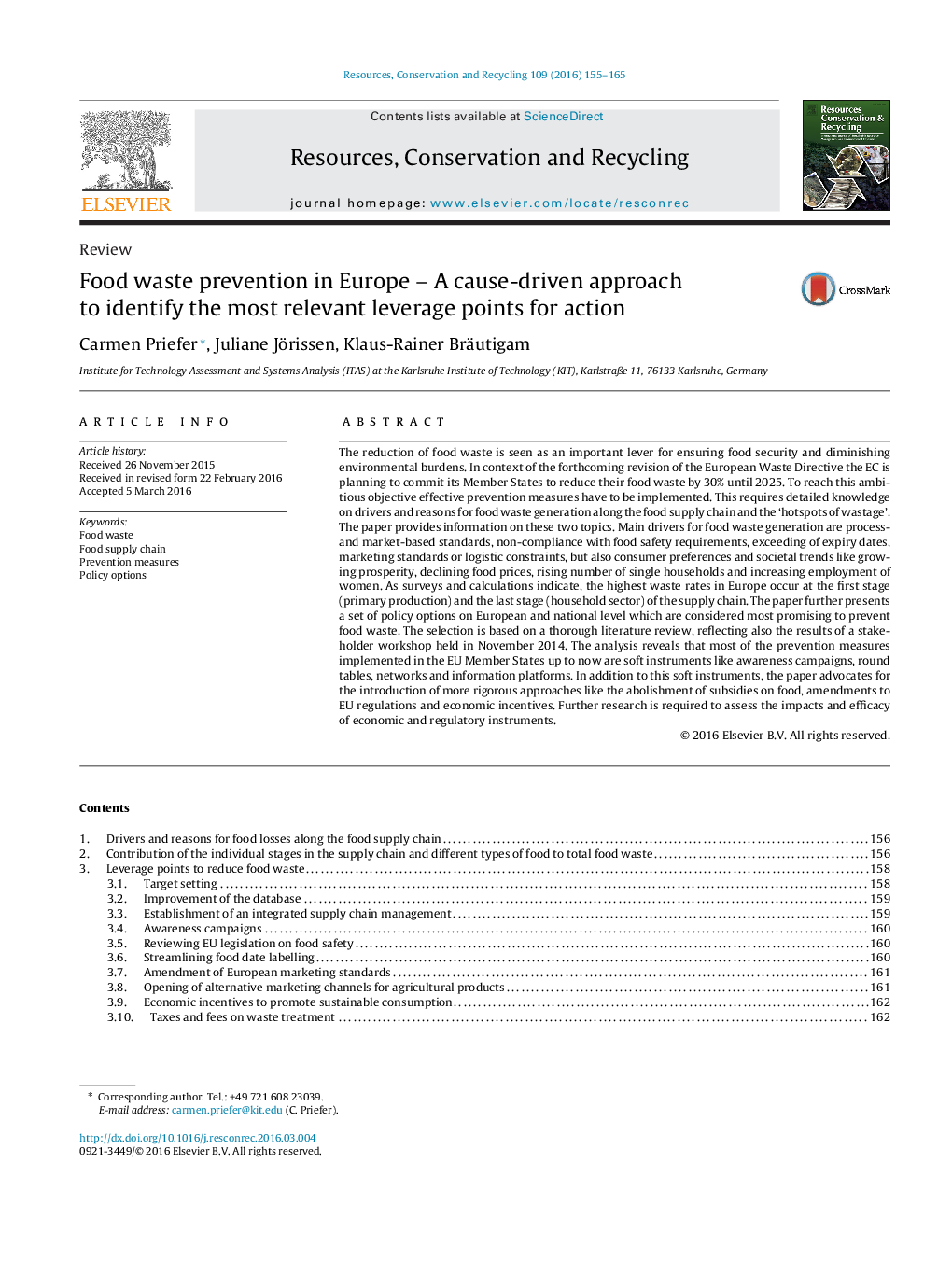| کد مقاله | کد نشریه | سال انتشار | مقاله انگلیسی | نسخه تمام متن |
|---|---|---|---|---|
| 7494935 | 1485682 | 2016 | 11 صفحه PDF | دانلود رایگان |
عنوان انگلیسی مقاله ISI
Food waste prevention in Europe - A cause-driven approach to identify the most relevant leverage points for action
ترجمه فارسی عنوان
پیشگیری از بروز زباله های مواد غذایی در اروپا - یک رویکرد مبتنی بر علت برای شناسایی مناسب ترین اهداف اهرم برای اقدام
دانلود مقاله + سفارش ترجمه
دانلود مقاله ISI انگلیسی
رایگان برای ایرانیان
کلمات کلیدی
زباله های مواد غذایی، زنجیره تامین مواد غذایی، اقدامات پیشگیرانه، گزینه های سیاست
موضوعات مرتبط
مهندسی و علوم پایه
مهندسی انرژی
انرژی های تجدید پذیر، توسعه پایدار و محیط زیست
چکیده انگلیسی
The reduction of food waste is seen as an important lever for ensuring food security and diminishing environmental burdens. In context of the forthcoming revision of the European Waste Directive the EC is planning to commit its Member States to reduce their food waste by 30% until 2025. To reach this ambitious objective effective prevention measures have to be implemented. This requires detailed knowledge on drivers and reasons for food waste generation along the food supply chain and the 'hotspots of wastage'. The paper provides information on these two topics. Main drivers for food waste generation are process- and market-based standards, non-compliance with food safety requirements, exceeding of expiry dates, marketing standards or logistic constraints, but also consumer preferences and societal trends like growing prosperity, declining food prices, rising number of single households and increasing employment of women. As surveys and calculations indicate, the highest waste rates in Europe occur at the first stage (primary production) and the last stage (household sector) of the supply chain. The paper further presents a set of policy options on European and national level which are considered most promising to prevent food waste. The selection is based on a thorough literature review, reflecting also the results of a stakeholder workshop held in November 2014. The analysis reveals that most of the prevention measures implemented in the EU Member States up to now are soft instruments like awareness campaigns, round tables, networks and information platforms. In addition to this soft instruments, the paper advocates for the introduction of more rigorous approaches like the abolishment of subsidies on food, amendments to EU regulations and economic incentives. Further research is required to assess the impacts and efficacy of economic and regulatory instruments.
ناشر
Database: Elsevier - ScienceDirect (ساینس دایرکت)
Journal: Resources, Conservation and Recycling - Volume 109, MayâJune 2016, Pages 155-165
Journal: Resources, Conservation and Recycling - Volume 109, MayâJune 2016, Pages 155-165
نویسندگان
Carmen Priefer, Juliane Jörissen, Klaus-Rainer Bräutigam,
